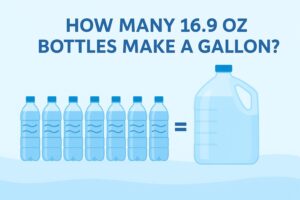
I’ll admit something: years ago, when I first heard about phentermine, I imagined it as this magical pill that torched fat while you sat on the couch eating pizza.
Spoiler alert—it doesn’t work like that. The truth is more interesting. When clients ask me, “does phentermine burn fat or just suppress appetite?” I always tell them it’s a little of both—but not in the way most people expect.
Think of phentermine as a behind-the-scenes coach in your brain. It doesn’t torch fat directly, but it helps you want fewer snacks, eat less, and feel a bit more energized to move.
That combination—eating less and moving more—creates the perfect storm for fat loss. So let’s break it down in a way that actually makes sense.
Does Phentermine Burn Fat or Just Suppress Appetite?

Phentermine is best known as an appetite suppressant. It stimulates certain neurotransmitters—norepinephrine, dopamine, and a touch of serotonin—to quiet down hunger signals. Suddenly, that “I need fries at 10 p.m.” craving doesn’t feel so strong.
But here’s where it gets interesting. Phentermine also revs up your energy a little. That’s not the same as being a fat-burning machine, but it makes you feel more active, which can translate into extra calories burned.
On top of that, some evidence suggests a small bump in metabolic rate. Nothing wild, but it can tip the scale in your favor.
In short, it helps you eat less, move more, and possibly burn a few more calories at rest. It’s not magic—it’s momentum.
What Is the Average Weight Loss Per Month on Phentermine?
This is one of the most common questions I hear, and the answer is: it depends on you. Most studies and clinics report that people can lose about 3 to 5 pounds per month on phentermine when paired with diet and exercise.
Here’s a quick comparison to put things in perspective:
| Approach | Average Weight Loss Per Month | Notes |
| Diet & Exercise Alone | 1–2 lbs | Slow but sustainable |
| Phentermine Only | 3–5 lbs | Works best short term (up to 12 weeks) |
| Phentermine + Topiramate | 4–8 lbs | More consistent appetite & satiety control |
The key here is sustainability. Phentermine isn’t a forever fix—it’s usually prescribed for a few months to help jumpstart progress. After that, lifestyle habits carry the torch.
Can Phentermine Help with Migraine?

Here’s a fun twist. Phentermine by itself isn’t a migraine treatment, but when it’s paired with Topiramate (remember our friend Topamax), some people may notice fewer headaches. Topiramate has an FDA-approved use for migraine prevention.
So if you’re on the phentermine–Topamax combo, you might see improvements in both weight loss and migraine frequency. However, this is a doctor-directed strategy, not a side benefit to count on casually. If migraines are a big issue, always bring it up with your healthcare provider before trying medication combos.
Is It Normal to Still Feel Hungry on Phentermine?

Yes—and this surprises people. Phentermine reduces appetite, but it doesn’t erase it completely. Think of it like turning down the volume on hunger rather than hitting mute. You’ll probably still feel hungry at mealtimes (that’s normal!), but the urge to snack mindlessly or overeat shrinks.
If you’re still ravenous all the time on phentermine, a few things might be happening:
- You’re not eating enough protein or fiber, which are natural appetite tamers.
- You’re dehydrated, and thirst often feels like hunger.
- Your dose or timing may need adjusting—something only your doctor can confirm.
Bottom line: some hunger is normal, but constant hunger might mean something needs tweaking.
How to Use Phentermine Effectively Without Relying on It

Here’s the practical stuff—the way I coach clients. Phentermine works best when it’s part of a bigger system, not the system itself.
- Eat real food first. Think lean proteins, whole grains, veggies, and healthy fats. Phentermine helps you want less junk, but you still need quality calories.
- Move daily. Use that energy boost to do strength training, go for a walk, or hit a spin class. Activity is what makes fat loss stick.
- Stay hydrated. Water not only curbs appetite but also supports fat metabolism.
- Plan for the exit. Remember, phentermine is short term. Build habits you can carry long after the prescription ends.
The drug is like training wheels. It steadies you while you build the balance to keep riding solo.
Can You Take Topamax and Phentermine Together?

This combo actually has a name: Qsymia. Doctors sometimes prescribe phentermine with Topiramate (a seizure and migraine medication).
Why? Because Topamax helps with feelings of fullness. It makes your meals more satisfying, which pairs perfectly with phentermine’s appetite-taming effect.
Together, they create a double punch: less hunger on the front end, more satiety after eating. Clinical studies show this pairing can lead to greater average weight loss than phentermine alone. While phentermine on its own might help people lose around 5% of their body weight, the combo can sometimes reach closer to 8–11%.
That said, this is a prescription approach that must be monitored carefully by a healthcare professional. It’s not something you want to self-experiment with—dosages and potential side effects matter.
FAQs
Does phentermine burn fat or just suppress appetite?
It mainly suppresses appetite, helping you eat fewer calories. Indirectly, it can support fat loss by giving you more energy and possibly raising metabolism slightly, but it’s not a direct fat burner. Think of it as setting the stage for fat loss rather than doing the heavy lifting itself.
Can I use phentermine long term?
Most prescriptions last up to 12 weeks, though some doctors may extend it in special cases. Long-term use carries more risks, so it’s not meant to be a lifestyle drug. The goal is to use it as a tool to build lasting diet and exercise habits.
What foods should I eat while on phentermine?
Focus on nutrient-dense meals—lean proteins, high-fiber veggies, whole grains, and healthy fats. Avoid high-sugar and heavily processed foods, since they can spike cravings and counteract the appetite control phentermine gives you.
What happens when I stop taking it?
Some people feel a return of appetite and may regain weight if habits aren’t in place. That’s why pairing it with sustainable lifestyle changes is so important. The medication is the launchpad, not the whole rocket.
No Magic Pills, Just Smarter Tools
So, does phentermine burn fat or just suppress appetite? It suppresses appetite, and that’s its superpower. The fat-burning happens because you’re eating less, moving more, and creating the calorie deficit your body needs. When used wisely—and ideally with a partner like Topamax—it can be a solid kickstart.
Here’s my take as a coach: treat phentermine like an assistant, not a hero. It’ll help you say no to late-night snacks and give you the energy to move, but the real transformation comes from the habits you build along the way. And those habits? They’ll still be with you when the prescription bottle is long gone.
Tip from me to you: if you’re considering phentermine, make sure you pair it with strength training. Building lean muscle while eating in a deficit is the best long-term investment in keeping the weight off.


